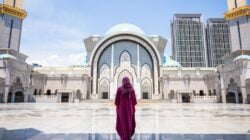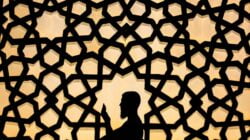During the holy month of Ramadan, Muslims around the world fast from dawn until sunset. This sacred time is not only a period of spiritual reflection and self-discipline but also a time of community and togetherness. One of the most anticipated moments of the day is iftar, the evening meal to break the fast. Iftar traditions vary greatly from country to country, offering a unique glimpse into different cultures and ways of life. Let’s take a journey around the world to explore these diverse iftar traditions.
Morocco
In Morocco, iftar starts with a date and a glass of milk. Then, a bowl of harira, a hearty tomato-based soup, is served alongside chebakia, a sweet and crispy pastry. People often gather in the streets or at the mosque to break their fast together, creating a lively and communal atmosphere.
Indonesia
In Indonesia, iftar typically begins with a call to prayer followed by a light meal called takjil. This is usually a sweet snack like kolak (a dessert made with bananas and sweet potatoes cooked in coconut milk) or es buah (a refreshing mixed fruit cocktail with syrup). The main meal, known as buka puasa, consists of rice, grilled meats, and a variety of side dishes.
Turkey
In Turkey, iftar is a grand affair with an abundance of food and festivities. Traditional dishes like pide (Turkish flatbread pizza), borek (savory pastries), and baklava are served alongside a variety of mezes (appetizers). Families often invite friends and neighbors to join them for iftar, creating a sense of warmth and hospitality.
United Arab Emirates
In the UAE, iftar typically begins with dates and water, followed by a spread of traditional Arabian dishes like lamb ouzi (spiced rice with roasted lamb), harees (a porridge-like dish made with wheat and meat), and luqaimat (sweet dumplings). Ramadan tents are set up across the country, offering lavish iftar buffets and entertainment for both locals and tourists.
Japan
In Japan, Muslims gather in mosques or community centers for iftar, where they enjoy traditional Japanese dishes such as sushi, tempura, and miso soup alongside dates and fruits. While the food may be different, the spirit of togetherness and gratitude remains the same.
As we can see, iftar traditions vary greatly from country to country, reflecting the rich diversity of cultures and customs around the world. This cultural journey not only offers a glimpse into different ways of breaking the fast but also celebrates the spirit of unity and community that defines the holy month of Ramadan.
FAQ Cultural Journey
Q: What is iftar?
A: Iftar is the evening meal that Muslims consume to break their fast during the holy month of Ramadan.
Q: Why is iftar important?
A: Iftar holds great significance as it brings together families, friends, and communities in a spirit of togetherness and gratitude.
Q: How long does iftar last?
A: Iftar typically lasts from sunset until the call to prayer for the evening prayer, known as Maghrib.






